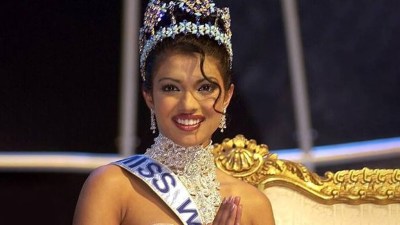How Oscar found Ms Right
Kathryn Bigelows win has dismantled stereotypes about films directed by women....
Kathryn Bigelows two-fisted win at the Academy Awards for best director and best film for The Hurt Locker didnt just punch through the American movie industrys seemingly shatterproof glass ceiling; it has also helped dismantle stereotypes about what types of films women can and should direct. It was historic,exhilarating,especially for women who make movies and women who watch movies,two groups that have been routinely ignored and underserved by an industry in which most films star men and are made for and by men. Its too early to know if this moment will be transformativebut damn,it feels so good.
No matter if theyre a source of loathing and laughter,the Oscars matter as a cultural flashpoint,perhaps now more than ever. All those Oscar viewers might not be ticket buyers,but when they watched the show this year,they would have heard,perhaps even for the first time,the startling news that Bigelow was the first woman in Oscars 82 years to win for best directing.
Even before the nominations were announced on February 2,as she picked up one award after another,including from her peers at the Directors Guild,people who dont usually talk about women and the movies were talking about this woman and the movies. I dont think Ive read the words women and film and feminism in the same sentence as much in the last few months since Thelma amp; Louise,written by Callie Khouri and directed by Ridley Scott,rocked the culture nearly two decades ago.
In a world where movies about women are routinely dismissed because theyre about women,as the patronising term chick flick affirms every time its reflexively deployed,Bigelow doesnt make those kinds of movies. Her vampires dont sparkle,they draw blood. She generally makes kinetic and thrilling movies about men and codes of masculinity set in worlds of violence.
One of the lessons of Bigelows success is that it was primarily achieved outside of the reach of the studios. She had help along the way,including from male mentors like James Cameron,her former husband,who helped produce Strange Days.
But that movie did poorly at the box office,as did her next two features,The Weight of Water and K-19: The Widowmaker. It wasnt until she went off to the desert to shoot The Hurt Locker,just as she had when she directed Near Dark,her 1987 cult vampire western,that she found a movie that hit on every level.
It was a long time coming,as Bigelow suggested when she appeared on 60 Minutes on February 28. During the interview,she explained to the apparently baffled host the meaning of scopophilia,a significant word in feminist film theory,though Bigelow kept gender out of her definition the desire to watch and identify with what youre watching. She insisted that there was no difference between what she and a male director might do,even as she also conceded that the journey for women,no matter what venue it ispolitics,business,filmits a long journey.
Her cool has disturbed some,who have scrutinised Bigelow up and down,sometimes taking suspicious measure of her height and willowy frame,partly because these are the only personal parts of her that are accessible to nosy interviewers. Women in movies,both in front of and behind the camera,are expected to offer a lot more of themselves,from skin to confessions. All that Bigelow freely gives of herself for public consumption is intelligent conversation and her work. Her insistence on keeping the focus on her movies is a quiet yet profound form of rebellion. She might be a female director,but by refusing to accept that gendered designationor even engage with itshe is asserting her right to be simply a director.
Hollywood might have been partly built on the hard work and beauty of its female stars,but it was the rare female director,Dorothy Arzner starting in the 1920s,Ida Lupino beginning in the 1940s,who managed to have her say behind the camera. It hasnt gotten better. According to Martha M. Lauzen,an academic who annually crunches numbers about women in American movies: Women comprised 7 per cent of all directors working on the top 250 films of 2009.
Its impossible to tell what Bigelows Oscars will mean for her,much less whether they will help other women directors.
- 01
- 02
- 03
- 04
- 05






























